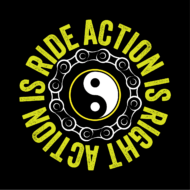A few weeks back, in order to read an article on the New York Times website, I did what I’m often loathe to do and signed up for a free account. As a consequence I now receive their daily digest, The Morning, in my inbox and it’s been a really pleasant surprise. I find it’s really well done and presented – almost to the point of making me feel guilty for not paying for a NYT subscription – but I haven’t yet. It does make me wonder though if other news outlets have anything comparable – I’d love to find a version that’s as well done from a Canadian news outlet. If you’re aware of one, ping me.
So far the only drawback I’ve found is that there’s no easy way to share segments of the email – I usually have to resort to forwarding the whole thing to someone – perhaps maybe this is part of their plan to get more subscribers.
Anyway, in this case I’m just going to copy and paste a segment of it here. In an effort to properly credit – the byline at the top of these says they’re written by David Leonhardt. You can view past editions there. The segment from today’s edition that caught me is as follows:
You Should Try a ‘Shultz Hour’
When George Shultz — who died Saturday at 100 — was secretary of state under Ronald Reagan in the 1980s, he developed a weekly ritual. He closed the door to his office and sat down with a pen and a pad of paper. For the next hour, Shultz tried to clear his mind and think about big ideas, rather than the minutiae of government work.Only two people could interrupt him, he told his secretary: “My wife or the president.”
Shultz told me that story when I interviewed him a few years ago, and it has stuck with me, because it’s even more useful advice today than it was four decades ago. These days, we are constantly interrupted by minutiae, via alerts and text messages. They can make it impossible to carve out time to think through difficult problems in new ways or come up with creative ideas.
Letting your mind wander, Sandi Mann, a British psychologist, has said, “makes us more creative, better at problem-solving, better at coming up with creative ideas.” The Dutch have a word for this concept: niksen, or the art of doing nothing. (And here’s a GQ interview in which the journalist Manoush Zomorodi argues that boredom could open the mind to creativity, problem-solving and more ambitious life goals.)
Shultz’s biggest accomplishment in government was precisely such a fresh idea: a recognition — which most other Reagan advisers lacked — that Mikhail Gorbachev was serious about reforming the Soviet Union.
As Amos Tversky, a pathbreaking psychologist, said, “You waste years by not being able to waste hours.”
– The Morning, February 9, 2021, by David Leonhardt
I like that the Dutch have an actual word for this, niksen.
From another NYT article, The Case for Doing Nothing by Olga Mecking:
It’s difficult to define what doing nothing is, because we are always doing something, even when we’re asleep.
Doreen Dodgen-Magee, a psychologist who studies boredom and wrote the book “Deviced! Balancing Life and Technology in a Digital World,” likens niksen to a car whose engine is running but isn’t going anywhere.
“The way I think about boredom is coming to a moment with no plan other than just to be,” she said.
Sandi Mann, a psychologist at the University of Central Lancashire in Britain, added that niksen can be “when we’re not doing the things we should be doing. Because perhaps we don’t want to, we’re not motivated. Instead, we’re not doing very much.”
More practically, the idea of niksen is to take conscious, considered time and energy to do activities like gazing out of a window or sitting motionless. The less-enlightened might call such activities “lazy” or “wasteful.” Again: nonsense.
Though I don’t have a specific schedule or time block as Shultz did, I have been spending more and more moments each day ‘thinking’. In some cases it’s about nothing. Or just letting whatever comes up be expanded upon. I don’t write anything down – perhaps I should – but more often than not, I’m just sitting. I often chuckle at myself thinking, “dude, you’re just sitting here staring into space, you should do something,” but often the result is that afterwards I feel better and my mind is clearer and more able to focus on what ever it is that I have to do. It’s like maybe, I just needed to get that doing nothing out of the way.
It certainly sounds better than I was just being lazy, so I’m going to stick with it.
